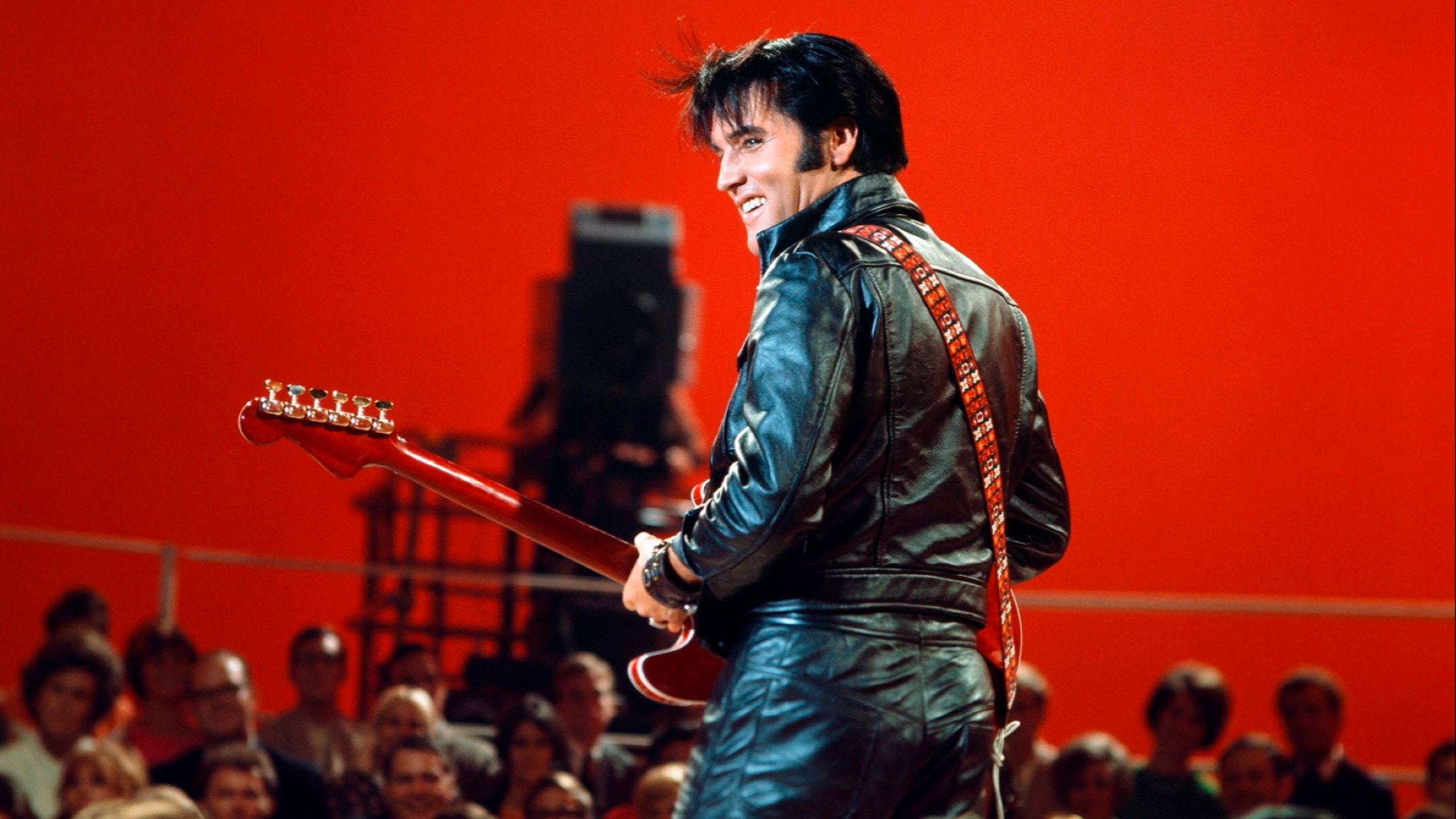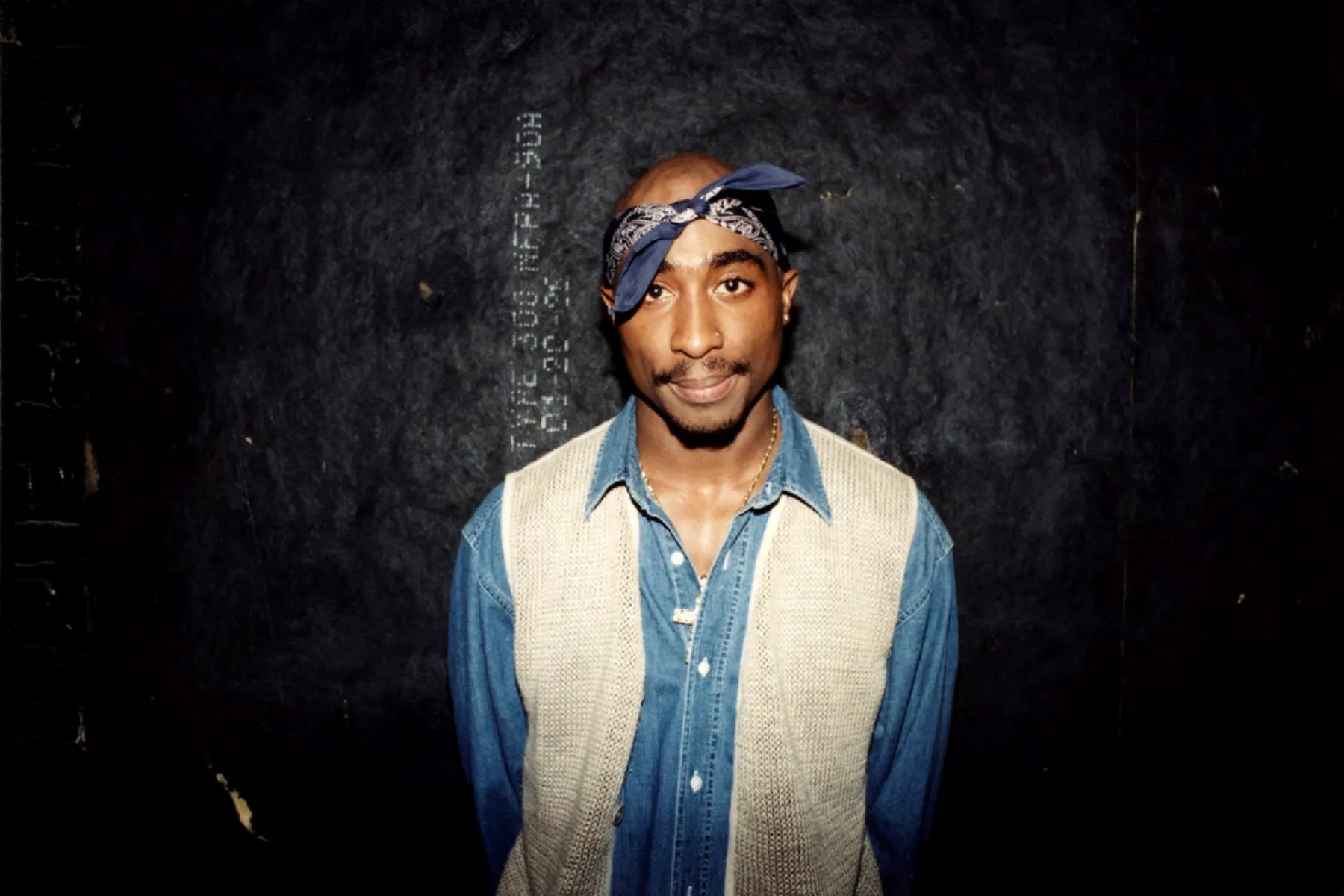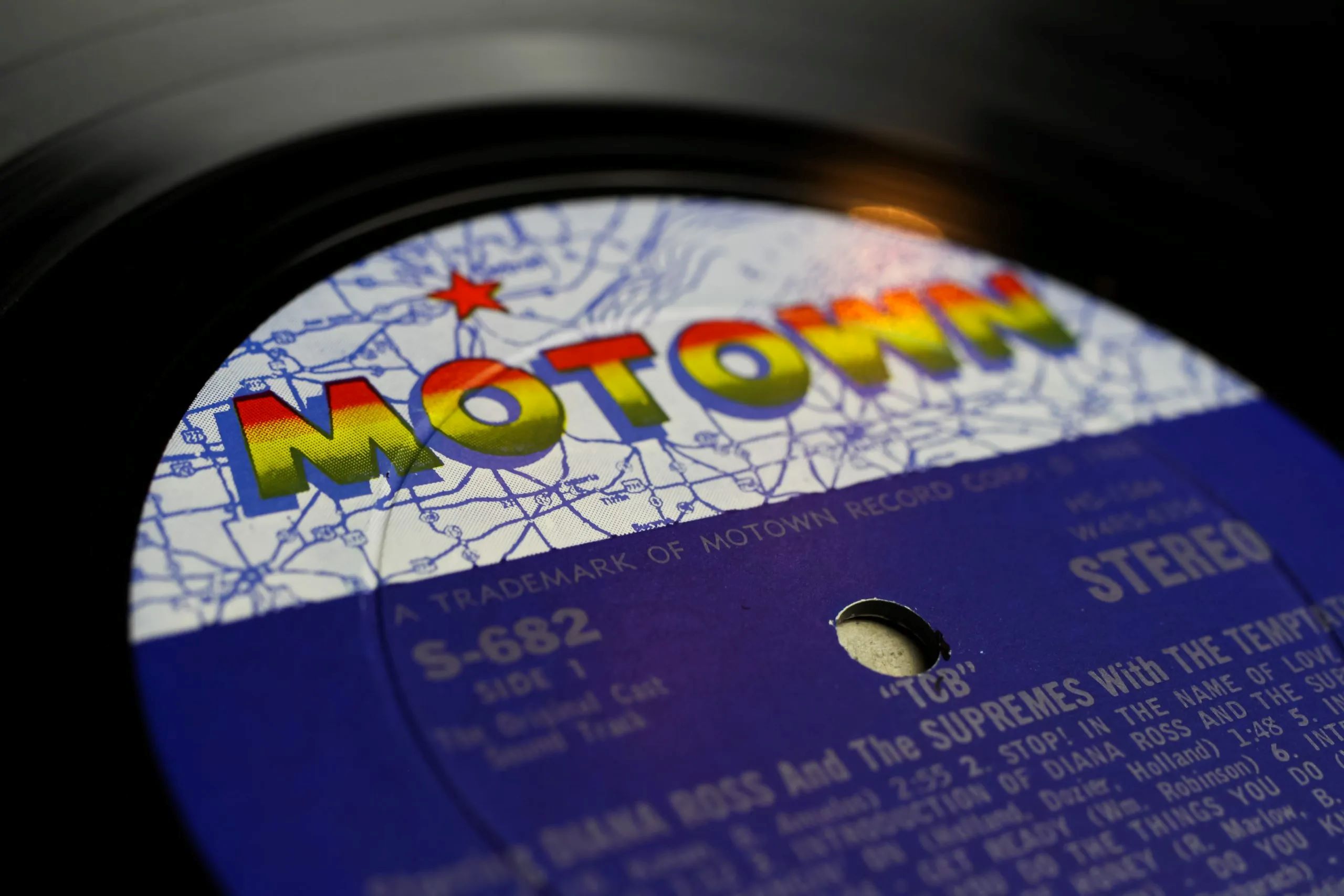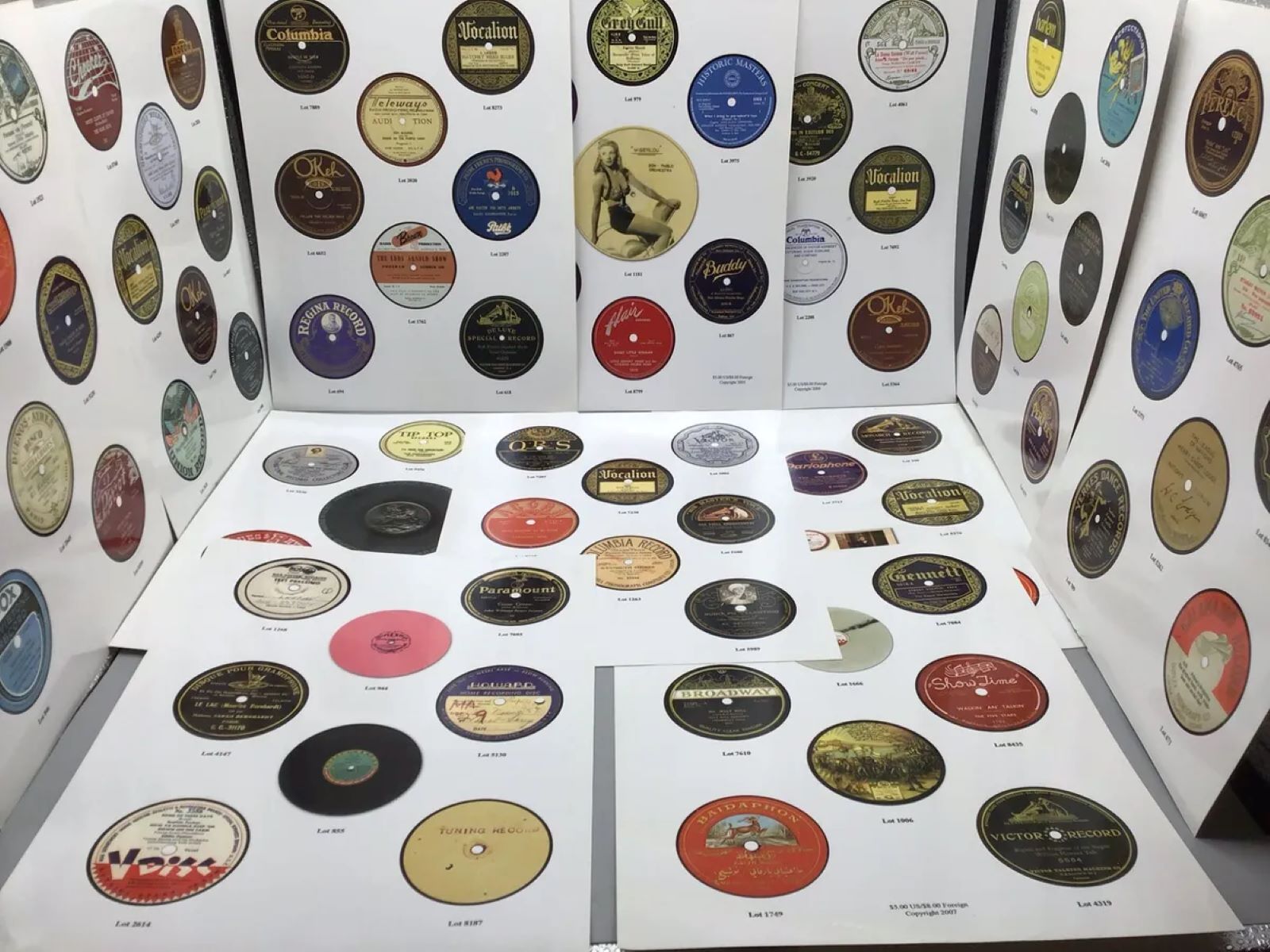Home>Production & Technology>Record Label>What Record Label Did Berry Gordy Jr. Create


Record Label
What Record Label Did Berry Gordy Jr. Create
Modified: February 15, 2024
Discover the iconic record label created by Berry Gordy Jr. and revolutionized the music industry. Explore the legacy and impact of this influential record label.
(Many of the links in this article redirect to a specific reviewed product. Your purchase of these products through affiliate links helps to generate commission for AudioLover.com, at no extra cost. Learn more)
Table of Contents
Introduction
When it comes to the history of record labels, one name stands out as a true pioneer and innovator: Berry Gordy Jr. As the founder of Motown Records, Gordy revolutionized the music industry and paved the way for countless artists to achieve success and recognition. With his unique vision and unparalleled talent, Gordy created a label that would leave an indelible mark on popular music.
Berry Gordy Jr. was born on November 28, 1929, in Detroit, Michigan. Growing up in a working-class family, Gordy was inspired by the sounds of jazz music and pursued his passion for songwriting and producing from a young age. He started his career in the entertainment industry by writing songs for various artists, but it wasn’t until 1959 that he decided to take a bold step and establish his own record label.
With an initial investment of just $800, Gordy founded Motown Records, a label that would become synonymous with the “Motown Sound” and launch the careers of legendary artists such as Stevie Wonder, Diana Ross, Marvin Gaye, and The Supremes. Motown Records quickly gained recognition for its distinctive blend of soul, pop, and R&B music, characterized by catchy melodies, tight harmonies, and infectious rhythms.
Under Gordy’s leadership, Motown Records became a powerhouse in the music industry, churning out hit after hit and dominating the charts throughout the 1960s and 1970s. The label’s unparalleled success was attributed not only to the talent of its artists but also to Gordy’s keen business sense and innovative marketing strategies.
One of Gordy’s key contributions to Motown’s success was his emphasis on grooming and developing artists. He personally mentored and guided many of Motown’s stars, nurturing their talents and helping them reach their full potential. Gordy’s hands-on approach and dedication to artist development set Motown apart from other labels at the time, and it contributed to the label’s ability to consistently produce top-quality music.
Early Life of Berry Gordy Jr.
Berry Gordy Jr., born on November 28, 1929, in Detroit, Michigan, was raised in a working-class family. From a young age, Gordy had a deep passion for music and a desire to make a mark in the entertainment industry. His love for music was influenced by his father, Berry Gordy Sr., who was a successful entrepreneur in the construction business but also had a great love for jazz music.
Gordy’s interest in music led him to try his hand at songwriting and producing. He started writing songs in his spare time while working at the Lincoln-Mercury plant in Detroit. Recognizing his talent and potential, Gordy’s sister, Gwen, introduced him to influential songwriter and producer Jackie Wilson, who would become a mentor and guide to the young Gordy.
With Wilson’s encouragement and guidance, Gordy honed his songwriting skills and began developing a network of musicians and artists in Detroit’s vibrant music scene. He collaborated with local musicians and penned songs that showcased his knack for catchy melodies and heartfelt lyrics.
Although Gordy showed promise as a songwriter, he faced numerous setbacks and rejections in his early career. Undeterred, he persisted in his pursuit of success and decided to establish his own record label in 1959. With an initial investment of $800, Gordy founded Tamla Records, which would later evolve into Motown Records.
Growing up in Detroit gave Gordy a unique perspective on the music industry. The city was a hotbed of musical talent, and Gordy saw the potential to create a label that would elevate the voices of Black artists in a predominantly white-dominated industry. This vision would become the cornerstone of Motown Records.
Gordy’s entrepreneurial spirit and determination set him apart. He was not satisfied with simply writing and producing songs; he had grand ambitions to build an empire that would redefine the music industry. Little did he know that his humble beginnings in Detroit would lay the foundation for one of the greatest success stories in the history of popular music.
Founding of Motown Records
In 1959, Berry Gordy Jr. took a leap of faith and founded Motown Records, a label that would go on to shape the landscape of popular music. With a visionary mindset and a drive to showcase the talents of Black artists, Gordy created a record label that became synonymous with groundbreaking music and artistic excellence.
Initially established as Tamla Records, Gordy’s label underwent a name change to Motown Records in 1960. The iconic name was derived from the label’s home base in Detroit, often referred to as the “Motor City” due to its association with the automobile industry. Gordy wanted the name to represent the energy, vibrancy, and creativity that his label aimed to bring to the music industry.
One of the unique aspects of Motown Records was Gordy’s holistic approach to the music-making process. Not only did he focus on producing and releasing high-quality music, but he also paid close attention to artist development, choreography, and image-building. Gordy wanted his artists to not only be talented musicians but also well-rounded performers who could captivate audiences with their stage presence.
Motown Records quickly became a hotbed for exceptional talent. Gordy brought together a remarkable roster of artists, including vocal groups like The Supremes, The Temptations, and The Four Tops, as well as solo artists such as Stevie Wonder, Marvin Gaye, and Diana Ross. These artists, along with many others, became the faces of Motown and helped define the label’s signature sound.
The success of Motown Records can be attributed, in part, to Gordy’s keen business instincts and innovative strategies. He embraced the concept of “the assembly line,” drawing inspiration from Detroit’s manufacturing industry. Gordy implemented a streamlined production process that allowed Motown to consistently release a steady stream of hits.
Another key element of Motown’s success was Gordy’s commitment to nurturing and developing talent. He created an environment where artists could grow and thrive, providing them with training, vocal coaching, and performance opportunities. Gordy’s hands-on involvement in the creative process helped create a sense of family within the Motown community.
With its catchy melodies, soulful harmonies, and infectious rhythms, the Motown Sound captured the hearts of listeners around the world. Motown Records became a force to be reckoned with, dominating the charts and breaking down racial barriers in the music industry. Gordy’s vision, combined with the immense talent of the Motown artists, solidified the label’s place in music history and left an indelible impact on popular culture.
The Motown Sound
One of the defining characteristics of Motown Records was its unmistakable sound. Dubbed “the Motown Sound,” it was a fusion of soul, pop, and R&B that captivated audiences and had a profound influence on the music industry. This unique sound, carefully crafted by Berry Gordy Jr. and his team of producers, became synonymous with Motown’s success.
The Motown Sound was characterized by its infectious melodies, catchy hooks, and meticulously arranged instrumentals. The rhythm section, consisting of a tight and grooving bassline, rhythm guitar, drums, and tambourine, formed the backbone of the sound. These elements provided a driving and rhythmic foundation for the songs, giving them an undeniable groove.
In addition to the rhythm section, Motown songs featured a blend of rich vocal harmonies, often performed by vocal groups like The Supremes, The Temptations, and The Four Tops. The intricate vocal arrangements added depth and dimension to the songs, creating a lush and melodic sound. Berry Gordy Jr. recognized the power of harmonies and made it a priority to develop and refine the vocal talents of his artists.
Another hallmark of the Motown Sound was its use of orchestration and arrangement. Motown songs often featured string sections, brass arrangements, and lush backing vocals to enhance the overall sound. These added layers of instrumentation created a grand and polished production value that set Motown apart from other labels of the time.
Lyrically, Motown songs often explored themes of love, heartbreak, and social issues. The lyrics were relatable and honest, resonating with listeners from all walks of life. Motown artists had the ability to convey raw emotion and storytelling through their performances, making their songs deeply impactful and memorable.
The Motown Sound not only captivated audiences in the United States but also gained international recognition. Motown Records became a global phenomenon, with hits topping charts across the world. The universal appeal of the Motown Sound transcended racial and cultural boundaries, bringing people together through the power of music.
Despite its distinct sound, the Motown Sound was highly versatile and adaptable. Motown artists showcased their versatility by seamlessly transitioning between different genres, including soul, pop, R&B, and even elements of rock and roll. This ability to cross genres further solidified Motown’s place in music history.
The influence of the Motown Sound can still be felt in contemporary music today. Its impact can be heard in the work of artists such as Beyoncé, Bruno Mars, and Justin Timberlake, who draw inspiration from the infectious melodies, tight harmonies, and polished production that characterized the Motown era.
The Motown Sound not only left an indelible mark on popular music but also played a significant role in shaping cultural and social movements of the time. Through its music, Motown Records promoted unity, love, and equality, making it a powerful force for change during a pivotal period in history.
Success and Impact of Motown Records
Motown Records was not just a record label; it was a cultural phenomenon that forever changed the music industry. With its roster of incredibly talented artists and distinct sound, Motown achieved unprecedented success and left an indelible impact on popular music.
From the 1960s to the early 1970s, Motown Records dominated the charts, with hit after hit climbing to the top. The label’s success can be attributed to its ability to consistently produce high-quality music and its innovative marketing strategies. Berry Gordy Jr. knew how to identify the potential of a hit song and was skilled at grooming and developing artists to their fullest potential.
Motown’s success went beyond just chart-topping records. The label played a pivotal role in breaking down racial barriers in the music industry. It was the first Black-owned record company to achieve widespread commercial success and become a global phenomenon. Motown’s success provided a platform for Black artists to shine, elevating their voices and showcasing their incredible talent to a wide audience.
The impact of Motown Records can still be felt today. The label’s influence on popular music is immeasurable, with artists from various genres drawing inspiration from the Motown sound. From soul and R&B to pop and hip-hop, the Motown legacy continues to resonate in the music industry.
Furthermore, Motown was a catalyst for cultural and social change. During a time of racial tension and division in America, Motown’s music promoted unity, love, and equality. The label’s artists broke down barriers and provided a unifying soundtrack for a generation.
Not only did Motown achieve success in the music industry, but it also made significant contributions to popular culture as a whole. The label’s fashion, style, and choreography became iconic, influencing the trends of the era and setting new standards for the industry. Motown artists such as Diana Ross, The Jackson 5, and The Supremes became cultural icons and influenced generations of musicians and performers.
Berry Gordy Jr.’s visionary approach to artist development and record production served as a blueprint for future record labels and industry professionals. Motown paved the way for other successful independent labels and showcased the power of embracing diverse talent and creating a supportive and nurturing environment.
In recognition of its cultural and musical impact, Motown Records was inducted into the Rock and Roll Hall of Fame in 1988. The label’s enduring legacy continues to be celebrated, with Motown’s iconic hits being cherished and performed by artists of all generations.
Overall, the success and impact of Motown Records cannot be overstated. It revolutionized the music industry, changed perceptions, and created a lasting legacy of groundbreaking music that continues to inspire and captivate audiences worldwide.
Berry Gordy Jr.’s Contributions to Motown Artists
Berry Gordy Jr., the visionary behind Motown Records, not only created a successful label but also played a crucial role in the development and success of its artists. His hands-on approach and dedication to artist development set Motown apart from other labels at the time and contributed to the label’s ability to consistently produce top-quality music.
Gordy’s commitment to nurturing talent was evident from the early stages of an artist’s career. He personally mentored and guided many of Motown’s stars, providing them with invaluable advice and direction. From vocal training to stage presence, Gordy worked closely with artists to refine their skills and develop their unique identities as performers.
One of Gordy’s key contributions was his ability to recognize and harness an artist’s potential. He had an uncanny knack for identifying talent and seeing the star power in individuals. Artists like Stevie Wonder, Diana Ross, Marvin Gaye, and The Supremes owe their success in large part to Gordy’s belief in their abilities and his relentless pursuit of their artistic excellence.
Gordy not only provided artistic guidance but also encouraged his artists to expand their creative horizons. He challenged them to write their own songs, pushing them to express themselves authentically through their music. This approach allowed Motown artists to have greater control over their artistic vision and contributed to the label’s reputation for producing timeless and original music.
Gordy’s contributions extended beyond the studio. He recognized the importance of image and presentation and worked meticulously to build the brands of Motown artists. From choreography to fashion, Gordy had a keen eye for detail and sought to create a complete package for his artists, ensuring that they not only sounded great but also had a visually appealing and memorable presence.
Furthermore, Gordy’s business acumen played a pivotal role in the success of Motown artists. He ensured that they received fair and equitable compensation for their work and negotiated lucrative contracts for them. Gordy believed in investing in the long-term success of his artists, creating a supportive environment that allowed them to thrive and achieve financial security.
Gordy’s dedication to artist development and his ability to foster a sense of community within the Motown family created an environment of collaboration and support. Artists learned from each other, shared experiences, and supported one another’s growth. This sense of camaraderie contributed to the incredible chemistry and cohesion that was evident in Motown’s music.
Overall, Berry Gordy Jr.’s contributions to Motown artists cannot be overstated. His guidance, mentorship, and commitment to their success propelled many artists to superstardom. The impact of his work is evident in the enduring legacy of the Motown catalog and the continued influence of Motown artists on the music industry.
Expansion and Challenges Faced by Motown Records
As Motown Records experienced tremendous success and acclaim throughout the 1960s, Berry Gordy Jr. recognized the need to expand the label’s reach and diversify its offerings. Motown underwent a period of rapid growth, expanding into new markets and facing various challenges along the way.
One of the key strategies Gordy employed was building a strong presence in the international music scene. Motown gained popularity worldwide, with its artists and sound resonating with audiences beyond the United States. This expansion into global markets allowed Motown to reach a wider audience and solidify its status as a global music powerhouse.
Gordy also recognized the importance of having an active presence on television. Motown-produced television specials and appearances on popular variety shows helped introduce Motown artists to a broader audience and cement their status as household names. The label’s artists also frequently toured, bringing their electrifying live performances to fans around the world.
However, expansion also came with its own set of challenges. As Motown grew, Gordy faced the task of maintaining the label’s signature sound and identity while diversifying its musical offerings. The label ventured into different genres, including psychedelic soul, funk, and even a brief foray into the emerging disco scene. While these explorations allowed Motown to evolve and stay relevant, they also posed the risk of straying too far from the label’s established image, resulting in mixed reactions from fans and critics alike.
Gordy also faced challenges in navigating the changing landscape of the music industry. As the 1970s progressed, the music scene became more fragmented, with the rise of genres like rock, punk, and disco. Motown had to adapt to these changing trends and find new ways to capture the attention of listeners who were seeking different sounds and experiences.
Another significant challenge that Motown faced was the departure of iconic artists from the label. As Motown’s contracts with its artists expired, many of them chose to pursue new creative directions and opportunities with other labels. Artists like Diana Ross and Stevie Wonder departed from Motown, leaving behind large shoes to fill. This necessitated the search for new talent and the cultivation of a new generation of Motown stars.
In addition to the artistic challenges, Motown also faced social and political challenges during this time. The Civil Rights Movement and the Vietnam War were at the forefront of national discourse, and Motown artists and the label as a whole were not exempt from taking a stance. Some artists, like Marvin Gaye, used their platform to address social issues through their music, while Motown as a label strived to maintain its neutrality and provide a unifying voice for listeners of all backgrounds.
Despite these challenges, Motown Records continued to produce hits and maintain a prominent presence in the music industry. The label’s ability to adapt to changing trends, discover new talent, and keep its finger on the pulse of popular culture allowed it to remain relevant and influential.
Berry Gordy Jr.’s entrepreneurial spirit and determination to overcome obstacles were key in guiding Motown Records through these expansion and challenge phases. His meticulous approach to artist development and his commitment to creating high-quality music ensured that Motown would remain a force to be reckoned with in the ever-changing music landscape.
Berry Gordy Jr.’s Later Ventures
While Berry Gordy Jr.’s influence on the music industry is primarily associated with Motown Records, his entrepreneurial spirit and creative ventures extended beyond the label. After leaving Motown in 1988, Gordy went on to explore new opportunities and make significant contributions in various areas.
One of Gordy’s notable later ventures was his foray into the world of filmmaking. In 1975, he wrote and produced the cult classic film “Mahogany,” starring Diana Ross. The film, which tells the story of a young woman pursuing her dreams in the fashion industry, became a beloved favorite among fans. Gordy’s involvement in filmmaking demonstrated his ability to successfully transition his talents from the music industry to the world of cinema.
Gordy also ventured into musical theater with the production of the Tony-nominated Broadway musical “Motown: The Musical” in 2013. The show chronicled the story of Motown Records and featured many of the label’s iconic hits. Gordy’s involvement in the production highlighted his continued influence and dedication to showcasing the legacy of Motown on a grand scale.
In addition to his creative ventures, Gordy also focused on philanthropy and community building. He established the Motown Museum in Detroit, Michigan, at the site of Motown’s original headquarters known as “Hitsville U.S.A.” The museum serves as a tribute to Motown’s storied history and pays homage to the artists who helped shape the label’s success. Gordy’s commitment to preserving and celebrating the Motown legacy is evident in his efforts to provide a space for fans and music enthusiasts to learn and engage with the history of the label.
Furthermore, Gordy has remained active in mentoring and supporting emerging talent. He has participated in various artist development programs, sharing his vast knowledge and experience with a new generation of aspiring musicians and entrepreneurs. Gordy’s dedication to nurturing talent and giving back to the creative community showcases his commitment to providing opportunities and fostering the growth of future artists.
The legacy of Berry Gordy Jr. extends far beyond his pioneering work with Motown Records. His ventures into film, theater, philanthropy, and mentorship demonstrate his versatility and continued impact on the arts and entertainment industry. Gordy’s entrepreneurial spirit and commitment to artistic excellence have left an enduring mark on popular culture, inspiring generations of artists and shaping the landscape of music and entertainment.
Conclusion
Berry Gordy Jr.’s impact on the music industry as the founder of Motown Records is nothing short of extraordinary. His vision, talent, and relentless pursuit of excellence laid the groundwork for one of the most successful and influential record labels in history.
From its humble beginnings in Detroit, Motown Records rose to prominence, capturing the hearts of millions with its iconic sound and unparalleled roster of talented artists. Gordy’s ability to identify and cultivate talent, coupled with his innovative business strategies, propelled Motown to unparalleled success.
The Motown Sound, with its infectious melodies, tight harmonies, and polished production, became a cultural phenomenon that transcended racial and cultural boundaries. Motown artists became legends, their music resonating with audiences around the world and shaping popular culture for generations to come.
Gordy’s contributions to Motown artists extended far beyond the studio. His dedication to artist development, guidance, and business acumen helped shape their careers and ensure their long-term success. He fostered an environment of collaboration and support, creating a sense of family within the Motown community.
Motown Records faced its share of challenges, but Gordy’s ability to adapt, innovate, and maintain the label’s essence allowed Motown to remain relevant and influential in a rapidly changing music industry.
Even after leaving Motown Records, Berry Gordy Jr.’s impact continued to be felt. His ventures in film, musical theater, philanthropy, and mentorship demonstrated his versatility and commitment to artistic excellence.
In conclusion, Berry Gordy Jr.’s contributions to the music industry and popular culture are immeasurable. His pioneering spirit, commitment to artist development, and unwavering pursuit of artistic excellence created a lasting legacy that continues to inspire and captivate audiences worldwide. Motown Records will forever be remembered as a symbol of Black excellence and a testament to the power of music to bring people together.











